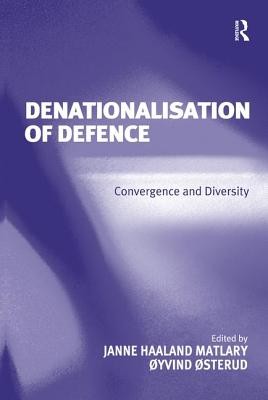
- We will send in 10–14 business days.
- Author: Janne Haaland Matlary
- Publisher: Routledge
- ISBN-10: 0754671194
- ISBN-13: 9780754671190
- Format: 15.6 x 23.4 x 1.3 cm, kieti viršeliai
- Language: English
- SAVE -10% with code: EXTRA
Reviews
Description
Denationalisation of Defence consists of two major parts: first, a generic and analytical section which presents the developmental trends in privatization and internationalization of armed force, and second, an empirical section analyzing the impact of these trends on the Nordic countries' defence and security sectors. The Nordic countries have a special relevance as objects of study given their traditionally strong public spheres and state-orientated systems of governance. This volume questions whether the process of denationalization has reached a point where countries are reacting to changes in their security environment by increasingly introducing elements of privatization and international integration.
EXTRA 10 % discount with code: EXTRA
The promotion ends in 21d.12:02:04
The discount code is valid when purchasing from 10 €. Discounts do not stack.
- Author: Janne Haaland Matlary
- Publisher: Routledge
- ISBN-10: 0754671194
- ISBN-13: 9780754671190
- Format: 15.6 x 23.4 x 1.3 cm, kieti viršeliai
- Language: English English
Denationalisation of Defence consists of two major parts: first, a generic and analytical section which presents the developmental trends in privatization and internationalization of armed force, and second, an empirical section analyzing the impact of these trends on the Nordic countries' defence and security sectors. The Nordic countries have a special relevance as objects of study given their traditionally strong public spheres and state-orientated systems of governance. This volume questions whether the process of denationalization has reached a point where countries are reacting to changes in their security environment by increasingly introducing elements of privatization and international integration.


Reviews